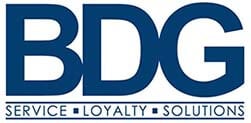Mergers can be crucial for many businesses. Not only can they open them up to new markets, but they can create more dynamic and profitable organizations. However, companies shouldn’t jump into an agreement like this right away. They will want to have a solid understanding of who they’re combining forces with. If they enter a merger without getting the information they need, the decision could have lasting effects.
Companies can reduce uncertainty when going into these deals by utilizing nondisclosure agreements (NDA). Businesses can use two different types of NDAs in merger/acquisition transactions.
Mutual NDAs
Mutual NDAs require each party to disclose private data. While these agreements can hold a lot of appeal, some sellers may be hesitant to enter them. Depending on the circumstances, sellers may not want access to the buyer’s private information, especially if it doesn’t affect them.
Non-Mutual NDAs
In a Non-Mutual NDA, only one party has to disclose personal data. These contracts can be beneficial for sellers. It can give them substantial bargaining power and leverage if any disputes arise. However, if buyers enter these agreements, they should pick their battles wisely and focus on the provisions that matter most to them.
What if the merger agreement contains a third-party?
More than two entities can be involved in an NDA. Sometimes, businesses share their confidential information with a third-party who engages in their practices. If sellers are concerned about this, they may want to ask the buyer if they plan to share the seller’s information with those same parties. If that’s the case, the seller may wish to request a provision that lays out what the buyer can and cannot disclose to the third-party. The seller may also want to list penalties the buyer could face if they violate their wishes.
Mergers can be complicated and time-consuming. A trusted legal partner can guide their clients towards cost-effective and risk-averse solutions that help address their needs.

